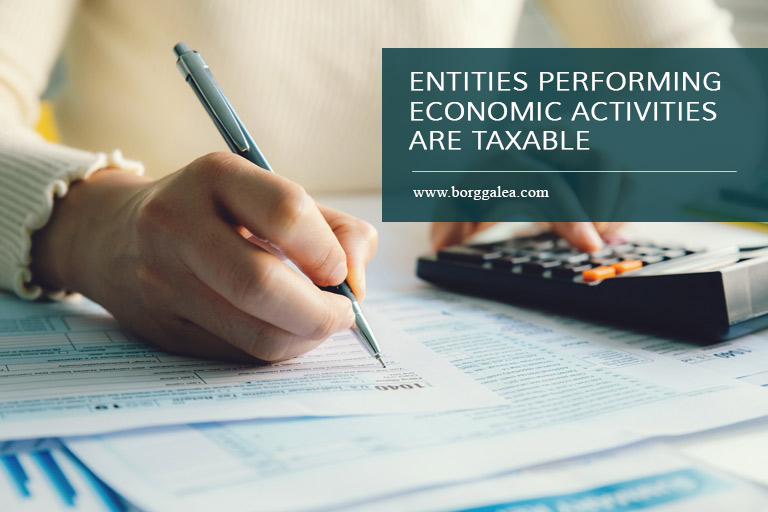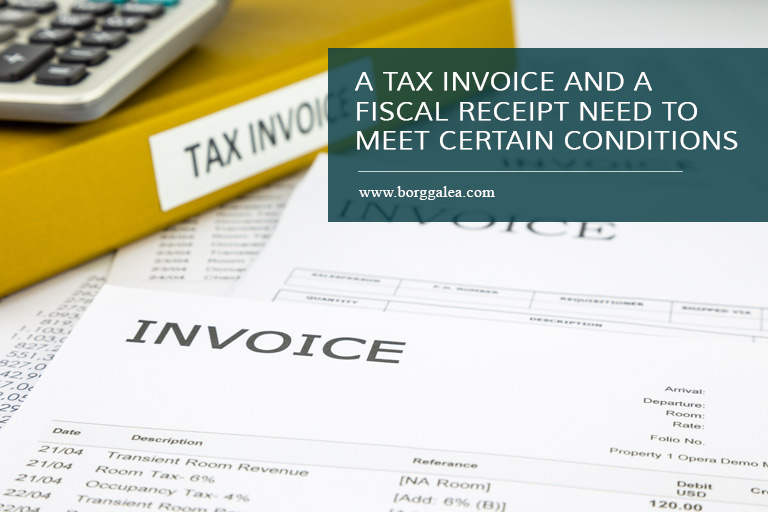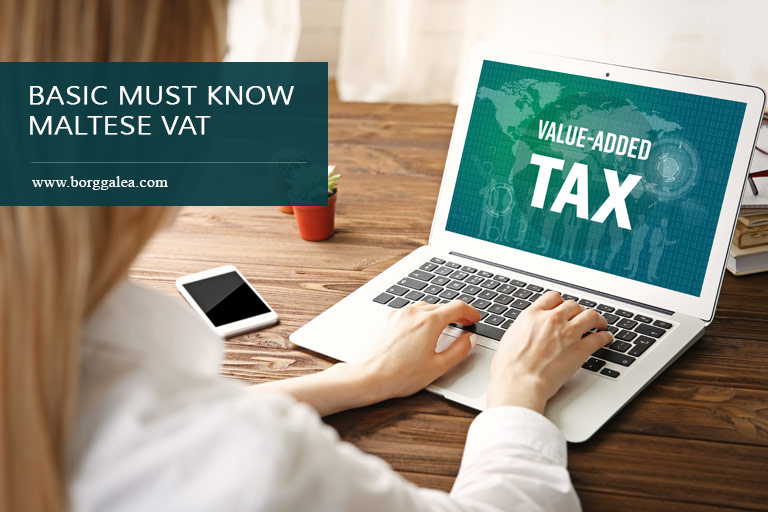Value-Added Tax (VAT) is a transaction-based tax, having nothing to do with how much income one earns in a particular year like income tax. This article is going to focus on discussing the basic must-knows on this topic.
For those who are not familiar with the term VAT, the concepts are very much the same as GST in the United States and Canada. One of the striking differences is that the prices in European Union are always quoted inclusive of VAT whereas in the United States of America and Canada, the prices are quoted excluding GST and one has to manually add them later which leads to some confusion.
Who Is Liable to Register for VAT?

If you are a person performing an economic activity, whatever the result or scope of that activity, then you are considered a taxable person.
What is an economic activity?
Economic activity is any activity which is carried out by a person who is not an employee and consists of any one or more of the following:
-
- Any trade, business, profession or vocation and the provision of any personal services;
- The exploitation of tangible or intangible property for the purpose of obtaining income therefrom on a continuing basis;
- The provision by a club, association or organisation of the facilities or advantages available to its members for a subscription or other consideration and;
- The admission of persons to any premises for consideration.
If you are rendering any of the above services, it is likely that you should register for VAT. However, whether you charge or are able to claim back the VAT spent on your expenditure is another question altogether.
What Are the Terms Input vs. Output VAT?
The output VAT is the value-added tax calculated and charged on your own sales of goods or services.
On the other hand, input VAT is the value-added tax added to the price you pay for eligible goods and services.
In simpler words, output vat is what you charge your customers and input VAT is what your suppliers charge you.
Different VAT Registrations:
In Malta, there are 3 types of VAT registrations and they are typically referred to by their legal article number.
Article 10 registration
If you are supplying goods and/or services and your annual revenue exceeds the threshold below, you must register for VAT under article 10. Here, a taxable person is liable to charge VAT on taxable supplies and claim back VAT incurred in the ordinary running of the economic activity, given that certain conditions are met.
A person under article 10 would:
- Have a VAT number with the prefix MT since the VAT number will be Maltese;
- Have to issue fiscal receipts and tax invoices, as the case may be, on all supplies made by him
- Submit a VAT return for a quarterly period by not later than 6 weeks after the end of the tax period.
Article 11 Registration
If supplying goods or services, however, the entry threshold has not been exceeded you may register for VAT as exempt under article 11. Under article 11 no VAT will be charged on your supplies, but no VAT incurred in the ordinary course of the economic activity may be claimed back. Having said this, there is still the option to register for VAT under article 10 in order to be able to charge and claim the VAT in a normal way. It is important to note that a taxable person is expected to remain registered under article 10 for a minimum of 36 months. After this period, a taxable person is able to register under article 11 provided that the exit threshold below is not exceeded.
A person registered under article 11 would:
- Must issue fiscal receipts on all supplies made to him
- Has an identification number without the MT prefix and the VAT number cannot be utilised for reverse charge mechanism, i.e. when you are buying from outside of Malta, you cannot ask the seller not to charge you VAT as part of the reverse charge mechanism
- Submit a declaration at the end of each calendar year which must be submitted by 15th March of the following year.
Article 12 Registration
Article 12 covers non-taxable legal persons or taxable persons not registered under article 10, where such a person makes an intra-community acquisition of goods in Malta, where the value exceeds €10,000 in a calendar year. In such a scenario such a person is liable to register for VAT under article 12 and pay VAT in Malta each time such intra-community are made.
When a taxable person is registered under article 11 as an exempt taxable person, however, intends to engage in Intra-community acquisitions, thus, such a taxable person is also liable to register under Article 12 to obtain a valid identification number for this purpose.
Entry and Exit Thresholds
| Economic Activity | Entry Threshold | Exit Threshold |
| Economic Activity consisting mainly of supplies of goods | € 35,000.00 | € 28,000.00 |
| Other Economic Activities | € 30,000.00 | € 24,000.00 |
The turnover thresholds above is calculated on the total value of sales excluding:
- The transfer of a business as a going concern
- Exempt without credit supplies
- The sale of fixed assets
- Supplies made to the business and deemed to be made by that business under the reverse charge provisions
Vatable Vs. Non-Vatable Goods and Services
The standard VAT rate is 18%. However, certain goods and services have a reduced rate of either 7% or 5% or 0%. This is covered in schedule 5 of the VAT act.
The 7% VAT rate is applicable on:
- Accommodation in a hotel or guest house including any premises where for the purpose of that accommodation, it is required to be licensed in terms of the Malta Travel & Tourism Act and;
- Sporting Facilities.
The 5% VAT rate is applicable on the:
- Supply of electricity
- Confectionery and other edible items
- Medical accessories
- Printed Matters
- Certain items for the exclusive use of the disabled
- Minor repairing of bicycles, shoes and leather goods, clothing, and household linen (including alterations and mending).
- Domestic care services such as home help and care of the young, elderly, sick or disabled
- Admission to museums, art exhibitions, concerts, and theatres.
- Services closely linked to Covid-19 diagnostic devices
The 0% VAT rate applies on the below exempt with credit supplies. Thus, there is no VAT charged on the value of the supply but the registered person is entitled to claim back input VAT incurred in the provision of that supply
- Food for human consumption
- Pharmaceutical products
- Scheduled bus service (tal-linja)
- Domestic inter-island sea passenger transport
- International passenger transport
- Exports
- Intra-community supplies of goods
Moreover, the 0% VAT rate also applies on the below exempt without credit supplies. Thus, VAT is charged on the supply but the supplier is not entitled to claim back input VAT in the provision of that supply.
- Supply of water by a public authority
- Supply of buildings and building land
- Supply of health and welfare services
- Supply of insurance and financial services
- Letting of immovable property is exempt except in the following situations:
- Letting for the purposes of accommodation in any hotel or guest house or similar establishment or in any holiday camp or camping site (at 7%)
- Letting of accommodation in holiday flats required to be licensed in virtue of the Malta Travel and Tourism Act (at 7%)
- The letting of immovable property by a limited liability company to a registered person for the economic activity of that registered person (at 18%)
Disclaimer: The above lists are not exhaustive and reference to VAT legislation would be appropriate
VIES Validation
VIES standing for VAT Information Exchange System is an electronic mean of validating VAT-identification numbers of economic operators registered in the European Union for cross border transactions of goods or services. It is always recommended, when you are engaging with a business supplier, to always validate their VAT number on the VIES prior to making the payment to ensure that the right details are included.
What Is the Difference Between a Tax Invoice and a Fiscal Receipt?

A tax invoice must be issued when a person registered under Article 10 makes a supply to another registered person. On the other hand, a fiscal receipt must be issued when a registered person makes a supply to a non-registered person unless the taxable person has an EXO number.
Both a tax invoice and a fiscal receipt have a set of conditions that should be met in order to be considered as such.
A tax invoice should include the below information:
- The date of issue;
- A sequential number, based on one or more series, which uniquely identifies the invoice;
- The name and address of the supplier and the VAT identification number under which he made the supply;
- The name and address of the person to whom the supply is made and the VAT identification number under which the customer acquired the goods or services supplied to him;
- The quantity and nature of the goods supplied or the extent and nature of the services rendered;
- The date on which the supply was made or completed or the date on which a payment on account of the supply was made insofar as that date can be determined and differs from the date of issue of the invoice;
- The taxable value per rate or exemption, the unit price exclusive of tax and any discounts or rebates if they are not included in the unit price;
- The VAT rate applied;
- The VAT amount payable, except where a special arrangement is applied;
- Where the person liable for payment of VAT is a tax representative in another Member State, the VAT identification number of that tax representative, together with his full name and address;
- Where the VAT becomes chargeable at the time when the payment is received, the mention “Cash accounting”;
- Where the customer receiving a supply issues the invoice instead of the supplier, the mention “Self-billing”;
- Where a tax invoice refers to supplies on which no tax is chargeable, it shall indicate a brief reference to the relevant provisions of the VAT Act, or the appropriate provisions of Council Directive 2006/112/EC, or any other indication on the grounds of which no tax is chargeable;
- Where the customer is liable for the payment of the VAT, the mention “Reverse charge”;
- Where the margin scheme for travel agents is applied, the mention “Margin scheme – Travel agents”;
- Where one of the special arrangements applicable to second-hand goods, works of art, collectors’ items and antiques is applied, the mention “Margin scheme – Second-hand goods”; “Margin scheme – Works of art” or “Margin scheme – Collector’s items and antiques” respectively;
- In an invoice for the intra-Community supply of a new means of transport the description of the goods supplied shall contain the particulars referred to in the definition of “new means of transport” in the VAT Act.
All the above information is reduced to the below where the taxable person liable for VAT on an invoice where the amount inclusive of VAT is not higher than €100:
- The date of issue;
- A sequential number, based on one or more series, which uniquely identifies the invoice;
- The name, address and the Value Added Tax identification number of the supplier;
- The Value Added Tax identification number of the person to whom the supply is made;
- A description sufficient to identify the goods and services supplied;
- The total amount of tax payable or the information needed to calculate it;
- Where the invoice issued is a document or message treated as an invoice, specific and unambiguous reference to that initial invoice and the specific details which are being amended.
What makes a receipt a fiscal receipt?
- By means of an approved fiscal cash register
- On manual fiscal receipt books supplied by the Department
- By means of a computerized or electronic system or a point of sale system, provided that prior approval has been obtained from the Department and the exemption number issued by the Department is printed on the receipt
- On application and following approval by the Department, tickets of admission to a function may be approved as fiscal receipts provided that the information as required in writing by the Department is printed on each ticket
- By means of a fiscal taxi-meter.
If you are new to VAT accounting rules or you would like to entrust your accounting to a trustworthy partner, contact Borg Galea & Associates. We work hard to ensure that the right systems and processes are in place. Our accountants in Malta tailor-make our approach to all of our clients to ensure that we always exceed our clients’ expectations and to ensure that the right data is constantly kept. To learn more about Malta company tax rates and how our services might come in handy, do not hesitate to contact us.


